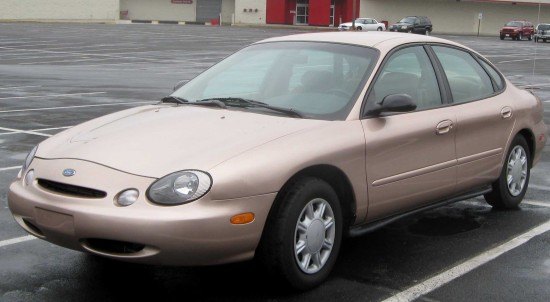TTAC Book Club – Car: A Drama of the American Workplace
Last week, I polled TTAC readers on essential reading related to the car industry. Since most of the books are old, and don’t merit a formal review, I figured that opening the floor to discussion would better serve the readers, and myself, with regards to thinking about the book and the lessons contained within.
The first book up for discussion is “Car: A Drama of the American Workplace”. Mary Walton’s look at the development of the DN101 Taurus was so revealing that it set a precedent for Ford – never again would a journalist be granted such in-depth access. Car is a look at the triumphs and heartbreaks that go into the half-decade it takes to develop a car. How the various facets of the company interact, the clash of ideas that exist between engineering and design, the way that everything most conform to internal budgetary requirements, government mandates and qualitative targets set by the engineers. It’s astonishing that vehicles even get developed, given all the hoops that must be jumped through by all parties involved.
Personally, it left an indellible impression on my notion of a car review; it’s easy to criticize a choice of seat fabric or a funky instrument panel on a test drive. Knowing that millions of dollars, hundreds of hours and endless arguments were waged over that component, by people with much more experience and education than I, makes me feel unworthy at best, incompetent at worst. Automotive journalism is briefly touched on towards the end of the book, as Walton delves into the absurdity of the press trip circuit and how writers are coddled.
Some takeaways
1) A successful new car can be just as much a product of timing and luck as it is effort and engineering. The DN101 was critically praised and designed expressly to beat the Camry, yet it was a sales flop. Given the long lead times for new cars and rapid shifts in market tastes, is there a way for car companies to hedge against this (see: Honda, which offered a decontented Civic, when high-content compact cars suddenly became the new thing in the industry).
2) The level of care and attention paid to the most minute components is humbling. The knobs and buttons on the Taurus’ instrument panel went through focus groups, committees and redesigns all before making it to production. We would laugh at their poor quality now.
3) All the focus groups and research clinics were enthusiastic about the styling of the Taurus; in the end, it proved to be the most controversial aspect with buyers.
Please feel free to bring up other points/criticisms in the discussion. The floor is turned over to you, the readers. I am reading these books as a means of building context. All contributions are welcome.
More by Derek Kreindler
Latest Car Reviews
Read moreLatest Product Reviews
Read moreRecent Comments
- Ravenuer Not into F1. Started watching NASCAR back when they raced actual cars. (yeah I'm that old). Not any more. They aren't "stock cars" now. Not even close. Even drag races don't interest me anymore. Races are over in 3 seconds.
- Wjtinfwb No confusion on my end, Ghost. The Government has zero role in job creation outside of the legitimate opportunities' created by Government going about it's responsibilities, namely keeping the American people and territory safe from foreign intrusion. Of course, they're failing epically at that but that's a different topic. The American free enterprise system is what enables job creation. Government's role is to stay out of the way of that system, but they seem incapable of doing so. Oil & Gas exploration is just one example. If a National Job Policy is what you're looking for, there are other countries that will be happy to accept your application for residency.
- Michael Smith I drive 100-300 miles a day in new BMWs, Mercedes-Benzes, and GM SUVs. Some are already equipped with automatic braking.It's the first thing I turn off when I start the car.I've had experiences where (as the author notes) the system gave false alarms and stabbed the brake pedal, threatening my ability to control the car.Further, every driver encounters situations where, for example, legal following distance must be momentarily compromised in order to avoid a difficult situation. When the system intervenes, it disrupts the driver's plan of action. This can lead to a collision as the driver has to suddenly react not to his surroundings, but to the system.Not only is automatic braking an insult to skilled drivers, it's dangerous to everyone.
- Dave M. My hipster daughter is greatly into it. We watched the race together this weekend. It was interesting but I'm not devoted to it like she is. She'll be at the Austin race in October.
- Bd2 I'll watch F1 when Kia and/or Hyundai pony (pun intended) up the cash to field a class leading team. Hyundai is leading many series with the Elantra N with it's incredible 350HP Smartstream-R engine.


































Comments
Join the conversation
1) A company, like a sports team, that does all the little things right and leads the market will find they generate much of their own luck. Product timing often ends up being first to market gets the spoils, so the better & faster the development process, the better your timing will be. Also, having a clear vision means you will lead and dictate the market. Being the trendsetter means you won't get stuck on the wrong end of changing market tastes. 2) I don't like decisions by committee, see #3 below. It often ends up that more work and people and time are needed to prevent the errors of committees. In many cases, if good & insightful standards can be defined, you just design to them and move on, and you know the end product will work. E.g., for radio controls, you can find out what size/shape/texture/location the volume knob needs to be to be pleasant & intuitive for the driver--then you just keep doing it. 3) People make different decisions in groups than they do on their own. It is a phenomenon of groupthink--and one curious result of it is that as a group, people will make more extreme decisions than they would individually. I suspect that was in play with the 'controversial' styling (as well as the 'blandness' of Toyotas). I suspect the groupthink effect was present in the Ford committees as well as the focus groups. I can also see how such focus groups let the Vista-esque plague of MFT get unleashed on the world when there were so many things wrong with it. It may have been an incident of novelty and neatness leading to high focus group ratings, when individually such feelings wear off quickly.
I ran my 92 sedan to 250,000 on the original transmission. Never had engine issues but the suspension/steering killed me. My brother had a dark green 96 and it was pure misery from the get-go. To me, Tauruses are mass-produced people movers it's tough to get emotional about. Even after the restyle, you knew the car was going to be so bland. Some people like bland. That's why Toyotas sell. But they are reliably bland, not a mechanical crapshoot like the Taurus.